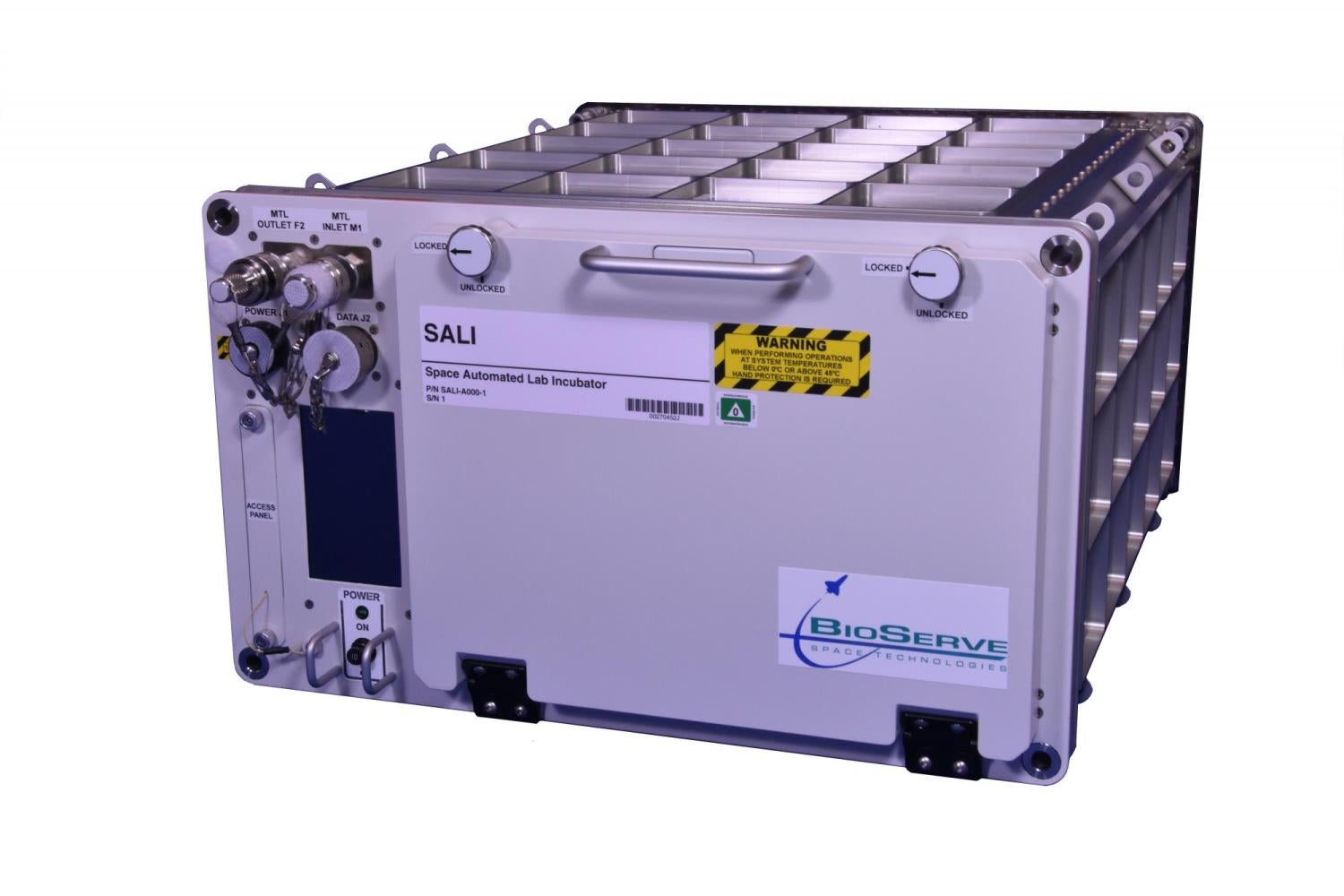BioServe hits 80 mission milestone

The SALI Incubator.
When SpaceX CRS-23 launched to the International Space Station on August 29, it carried with it a milestone for the University of Colorado Boulder: the 80th mission to fly a payload from BioServe Space Technologies.
BioServe, based in the Ann and H.J. Smead Department of Aerospace Engineering Sciences, designs and builds life science research and hardware for experiments in space microgravity environments. They partner with pharmaceutical and biotechnology companies as well as universities and NASA funded researchers to conduct research that cannot be performed on Earth.
Founded in 1987, BioServe has flown equipment aboard six different types of spacecraft (Space Shuttle, Progress, Soyuz, HTV, Dragon, and Cygnus) and two space stations (Mir and ISS) and has had continuous presence on ISS since 2002.
CRS-23 is carrying BioServe’s Space Automated Laboratory Incubator (SALI), which will be used to incubate biological experiments in space. It replaces another piece of BioServe equipment, the Commercial Generic Bioprocessing Apparatus (CGBA), which has been aboard ISS since 2001. SALI uses thermoelectric elements and can be set to actively heat or cool its thermal control chamber from -15°C to +60°C (5°F to 138°F).

